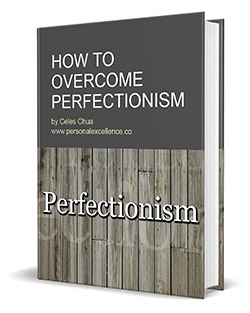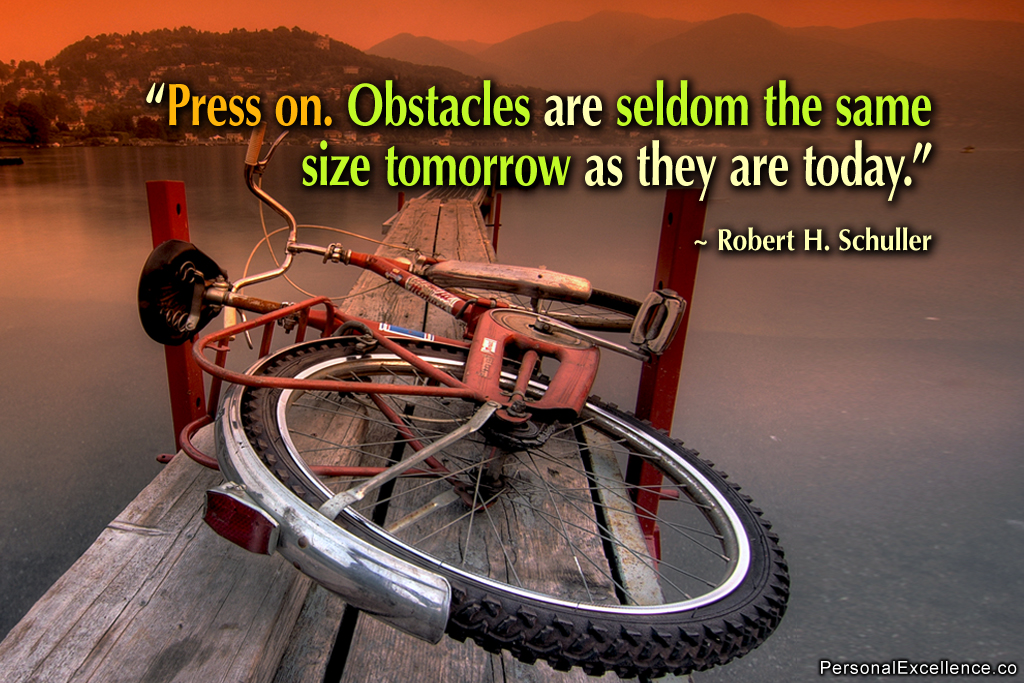
This is part 1 of my 3-part series on perfectionism: 10 signs of a perfectionist, the negative effects of perfectionism, and how to overcome them.
- Part 1: 10 Signs You Are a Perfectionist
- Part 2: 6 Negative Effects of Perfectionism
- Part 3: How To Overcome Perfectionism: Your Complete Guide

Are you a perfectionist? Do you often seek to achieve a perfect standard in your work? Do you feel a need to improve every single thing you do to the state of perfection, even at the expense of your well-being?
A perfectionist is someone who refuses to accept anything less than perfection. In psychology, perfectionism is a personality trait characterized by “a person’s striving for flawlessness and setting excessively high-performance standards, accompanied by overly critical self-evaluations and concerns regarding others’ evaluations.”[1]
To a perfectionist, anything less than perfect is unacceptable.
Are You A Perfectionist?
Here are 10 signs of a perfectionist:
- You have extremely high standards. You set very high targets for whatever you set out to do. Sometimes, these targets stress you out. You may spend many late nights and sacrifice your sleep just to achieve them.
- There is no room for mistakes. Whenever you see a mistake, you are the first to jump on it and correct it. Just knowing that there is a mistake that hasn’t been fixed irks you.
- You have an all-or-nothing mindset. This is also known as black-and-white thinking. Either you do something well or you don’t do it at all. If something is not done perfectly, that means it’s a disaster. There is no in-between.
- You are highly self-critical, even over little things. Whenever something goes wrong, you become really hard on yourself. It doesn’t matter if it’s your fault or not — you’re quick to beat yourself up over it.
- You have a very specific way of doing things. People don’t get you because you’re particular about how things should be done.
- You become depressed when you don’t achieve your goals. You often mull over things that don’t turn out as planned. You mourn over the loss of your ideal outcome and wonder if things could have turned out better if you just did X or Y.
- You are highly ambitious. No matter what you achieve, you always have a higher target to aim for. You are rarely content with status quo, always looking to do more and be more.
- You procrastinate just to do things at the “right” moment. You wait for the “right” moment to do something perfectly. This leads to procrastination as you keep waiting for the right moment to work on something, rather than doing it imperfectly and refining along the way.
- You spot mistakes when others don’t see any. You often spot mistakes because you are very detail-oriented and have a higher standard than others, where you see issues that others don’t regard as issues because they have simpler expectations.
- You spend copious amount of time to perfect things. Perfection is the end goal. You often sacrifice your sleep, rest, and personal time just to bring your work to the highest level. To you, it is all part of achieving the goal.
Can you recognize any of these traits in yourself? How about in your loved ones?
My Experience With Perfectionism
I used to be a highly neurotic perfectionist. All the 10 signs fit me to a tee — and in fact, many of them still apply to me today. The difference is that I’ve learned to dial down the negative aspects of my perfectionism and turn it into a healthy form of perfectionism (more in Parts 2 and 3).
The reason for my perfectionism is my inner drive for betterment and giving my best in whatever I do. One of my core values is Excellence — I think that when we decide to do something, we should do our best without compromising or giving excuses.
I’m also a highly sensitive person and notice details that others don’t. While I used to think that this was normal and that everyone else saw the same things as I did, I realized this isn’t the case when I grew up and worked with a large number of people in school, work, and life.
Hence my inner drive for excellence, along with my high innate sensitivity, have made me highly meticulous in everything I do. This meticulousness extends beyond studies and work, to every area in life.
For example, when I was making websites as a teen (as a hobby), I was relentless in perfecting every single aspect of my sites. I was constantly editing my graphics and checking my HTML code to make sure everything was “perfect.” I would spend hours ensuring that my sites looked great at every resolution and on every browser, while making tiny tweaks like constant one-pixel changes. I was very particular about how everything looked and the content I was putting out there, even though I wasn’t getting paid for this work.
When I was gaming as a kid, I was always perfecting my playthroughs in every game. As a kid, my brother would criticize me if I executed moves wrongly or made mistakes that resulted in the game character’s death. This taught me to be very precise in how I executed each move and achieving 100% perfection. I remember how I broke all the top scores in Crazy Taxi (a racing game) and completed every challenge despite the difficulty. I played King of Fighters ’95 for months, perfected my moves and attacking strategies for my favorite characters, and completed it countless times on the hardest difficulty. In total, I completed at least 100 games from RPGs to action games to racing games throughout my childhood!
In project groups at school, I would often take over the project work due to teammates slipping on their deliverables or just to improve the overall standard of our submitted work. Even though it was at the expense of my time and rest, even though I often ended up doing a lot more work than some teammates, the end result was worth it as we would get the best grade.
With my daily work at Personal Excellence, I’m very meticulous in what I put out. For example, with each PE course, I spend many months working on the course materials before launching it. After I conduct a live course, I would spend another few months improving the course material based on the participants’ feedback. Every piece of content is always thoroughly thought out before getting published. After a content is published, I would continue to improve it over time.
Being a perfectionist has helped me achieve immense results and become an overachiever in every life area. It has helped me do well in university, perform well in my job, and excel in many goals and projects.
However, as I grew older, I realized that (neurotic) perfectionism has serious negative effects as I share in the next part. Proceed to Part 2: 6 Negative Effects of Perfectionism
Get the manifesto version of this article: 10 Signs You Are a Perfectionist [Manifesto]
This is part 1 of my 3-part series on perfectionism: 10 signs of a perfectionist, the negative effects of perfectionism, and how to overcome them.










 Thanks for reading. If you like my free articles, join my private email list and get my latest updates and articles sent right to your inbox.
Thanks for reading. If you like my free articles, join my private email list and get my latest updates and articles sent right to your inbox.